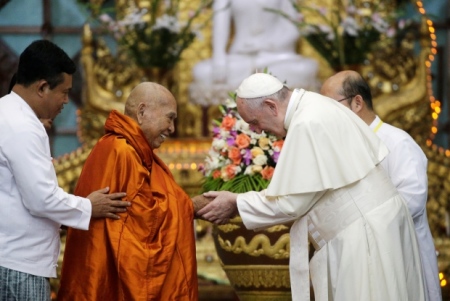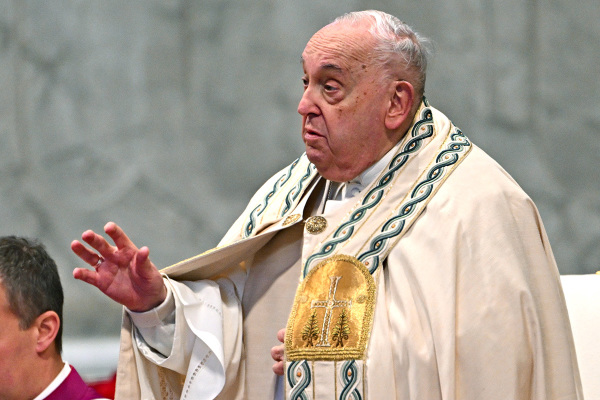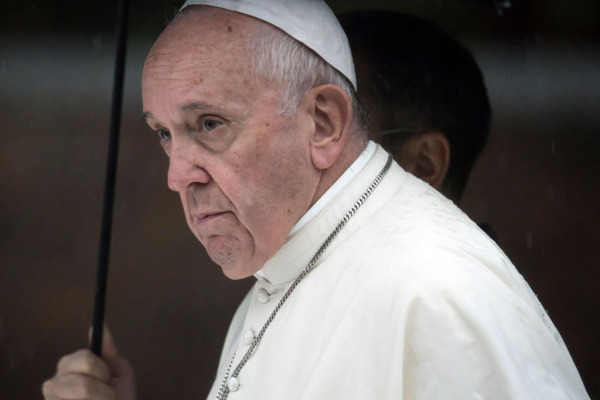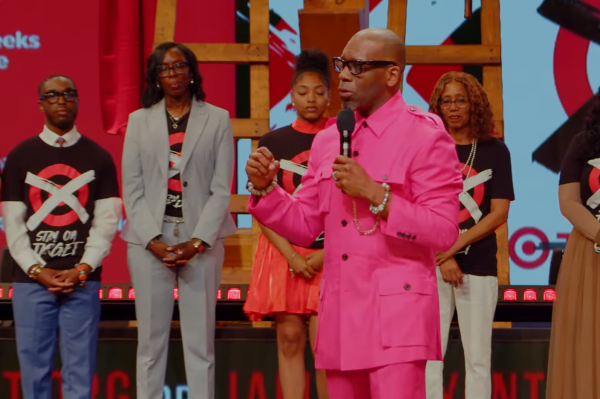Vatican Defends Pope Francis Avoiding Term 'Rohingya' in Myanmar

The Vatican on Wednesday defended Pope Francis' decision not to use the word "Rohingya" in public during his visit to Myanmar, saying his moral authority was unblemished and that his mere presence drew attention to the refugee crisis.
But at a news conference, the Holy See's spokesman also acknowledged that Vatican diplomacy was "not infallible" and that others were entitled to their views.
The pope leaves on Thursday for Bangladesh, where about 625,000 Muslim Rohingya from predominantly Buddhist Myanmar have fled following a military crackdown in Rakhine state. He is due to meet Rohingya refugees there.
Since he arrived in Myanmar, Francis has studiously avoided the highly charged term, following advice of local Church officials. They feared it could set off a diplomatic incident and turn Myanmar's military and government against minority Christians.
Even though his calls for justice, human rights and respect were widely seen as applicable to the Rohingya, who are not recognized as citizens or as members of a distinct ethnicity, rights groups such as Amnesty International said they were disappointed.
"I think it was pretty clear from the local concerns that the pope was going to take the advice very seriously in public," Vatican spokesman Greg Burke said at the news conference, which was also with several Myanmar bishops.
"That doesn't take away from anything the pope has said in the past, or from anything he says in private," Burke said. "The fact of the matter that the pope is here and draws attention to the country itself is an incredibly positive thing."
Scores of Rohingya villages were burnt to the ground, and refugees arriving in Bangladesh told of killings and rapes. Washington said last week that the military's campaign included "horrendous atrocities" aimed at "ethnic cleansing."
Myanmar's military has denied accusations of murder, rape and forced displacement. The government blames the crisis on the Rohingya militants, whom it has condemned as terrorists.
VATICAN DIPLOMACY NOT INFALLIBLE
"Everyone's entitled to their own opinion here. Nobody ever said Vatican diplomacy's infallible," Burke said when asked if the Vatican had any second thoughts about the decision for the pope not to use the word.
He said the aim of Vatican diplomacy was "building bridges" and seek discussions as "brothers, which often take place behind closed doors." This suggested the pope, who has defended Rohingya by name before in Rome, may have used the term in private during meeting in Myanmar.
The pope, Burke said, was "not afraid of minefields," but he could not just "parachute in" to areas to solve crises.
"I find it really hard to think that the moral authority of the pope has somehow diminished. People are not expected to solve impossible problems," Burke said.
"The moral of the pope stands. You'll see him go ahead and you can criticize what is said and what is not said, but the pope is not going to lose moral authority on this question," he said.
Asked about the accusations of ethnic cleansing, Bishop John Hsane Hgyi said "I did not see it with my own eyes. I don't know if its true or not."
When she came to power in 2016, Nobel peace laureate and longtime champion of democracy Aung San Suu Kyi said her top priority was ending ethnic conflicts that have kept Myanmar in a state of near-perpetual civil war since independence in 1948.
That goal remains elusive and, although Suu Kyi remains popular at home, she has faced a barrage of international criticism for expressing doubts about reports of rights abuses against Rohingya and failing to condemn the military.
Although Suu Kyi formed Myanmar's first civilian government in half a century, her defenders say she is hamstrung by a constitution written by the military that left the army in control of security and much of the apparatus of the state.
The military's power was clear on Monday when its leader, Senior General Min Aung Hlaing, demanded to meet the pope before Sun Kyi, upending the planned schedule, which had her meeting the pontiff first.
"I'm sure the pope would have preferred meeting the general after he had done the official visits," Burke said.






















